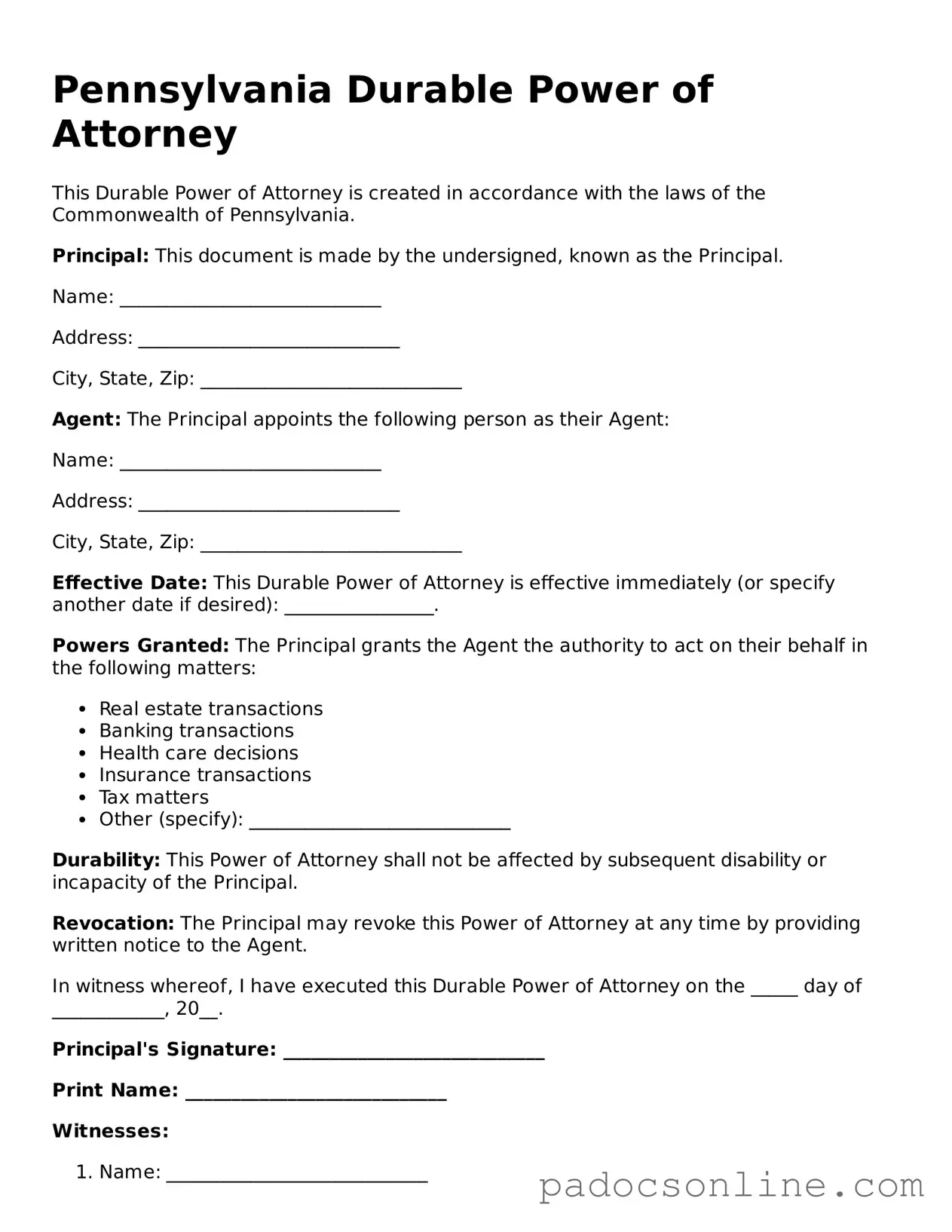Filling out a Pennsylvania Durable Power of Attorney form is an important step in planning for the future. However, many individuals make common mistakes that can lead to complications down the road. Awareness of these pitfalls can help ensure that your wishes are honored and that your document serves its intended purpose.
One frequent mistake is failing to clearly specify the powers granted to the agent. The form allows you to outline specific authorities, such as managing finances or making healthcare decisions. Without clear instructions, your agent may face challenges in understanding what actions they can legally take on your behalf. This ambiguity can create confusion and potentially lead to disputes among family members.
Another common error is not naming a successor agent. Life is unpredictable, and your first choice may not always be available when needed. By failing to designate a backup agent, you risk leaving your affairs in limbo if the primary agent is unable or unwilling to serve. Always consider who can step in if your first choice is unavailable.
Some individuals overlook the importance of having the document properly witnessed and notarized. In Pennsylvania, the law requires that the Durable Power of Attorney be signed in front of a notary public and witnessed by two individuals. Skipping this step can invalidate the document, rendering it ineffective when you need it most. Ensure that you follow the legal requirements to avoid future complications.
Additionally, many people forget to review and update their Durable Power of Attorney as circumstances change. Life events such as marriage, divorce, or the birth of a child can significantly alter your preferences. Regularly revisiting your document ensures that it reflects your current wishes and that your agent is still the right choice for the role.
Some individuals may also neglect to communicate their decisions with the appointed agent. It’s essential to have open discussions about your intentions and expectations. By doing so, you empower your agent to act in alignment with your wishes. Lack of communication can lead to misunderstandings and unintended decisions that do not reflect your desires.
Another mistake is being unaware of the potential for abuse. While most agents act in good faith, it’s crucial to choose someone you trust implicitly. Taking the time to evaluate the character and reliability of your chosen agent can help safeguard your interests. If you have concerns, consider including specific provisions that limit the agent's authority.
Finally, some people fill out the form without fully understanding its implications. A Durable Power of Attorney grants significant authority to another person, and it’s essential to grasp what that means. Take the time to educate yourself about the responsibilities and powers you are assigning. This understanding will help you make informed decisions and select the right person for the job.
